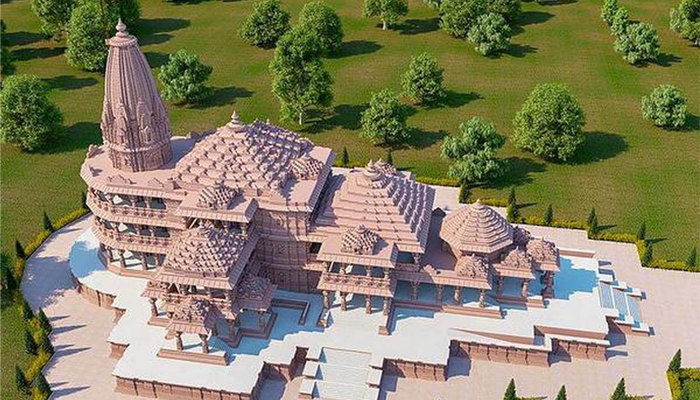One of the most wanted courses for engineering students, Computer Science Engineering (CSE) is an educational program that unites the fields of computer engineering and computer science. The program, which emphasizes the basics of computer programming and networking, covers a wide range of topics. Topics include counting, algorithms, programming languages, program design, computer software, computer hardware, and more.
Computer science engineers cover many aspects of computing, from the design of individual microprocessors, personal computers, and supercomputers to the circuit design and writing software that powers them.
The course is offered at technical institutes across India and abroad at UG (undergraduate) and PG (postgraduate) levels where students are awarded B.Tech and M.Tech degrees respectively. Students following the course will be taught about the design, implementation and management of computer hardware and software information systems.
Although CSE is one of the engineering skills, candidates pursuing the program have the option to choose from a number of other skills such as telecommunications, web design, computer hardware and software implementation and maintenance.
Skills Required
To pursue a computer science engineering program, candidates must have the right skills to succeed in the future. Take a look at some of them below.
|
Analytical skills |
Problem-solving skills |
|
Critical thinking |
Creativity |
|
Good Programming Skills |
Strong Data Structures and Algorithms skills |
|
Basic web development knowledge |
Basics of Machine Learning |
|
Basics of security, vulnerabilities, and cryptography |
Ability to grasp the knowledge quickly |
Computer Science Engineering: Eligibility Criteria
The basic qualifications to pursue a computer science engineering program at UG and PG level are:
- Undergraduate (UG): Applicants should have passed the Class 10 + 2 exam from a recognized board as the core subjects of Physics, Chemistry and Mathematics. In addition, candidates should also get a minimum overall score of 60% in the said subjects.
- Postgraduate (PG): Applicants must have completed a B.Tech degree in the same field with an overall percentage of the subjects studied at the degree level.
Computer Science Engineering: Job Profiles and Higher Recruiters
Computer science engineering students study the design, implementation, and management of information systems, both software and hardware. Here are some of the ones I found to be interesting:
The All India Council of Technical Education (AICTE) has listed the model curriculum of computer science engineering in which every college offering the program should follow. Take a look at it below.
Click here to know TOP CSE colleges in India
Structure of a basic UG CSE Programme:
|
S. No. |
Category |
Credit Breakup for CSE students |
|
1 |
Humanities and Social Sciences including Management courses |
12 |
|
2 |
Basic Science courses |
24 |
|
3 |
Engineering Science courses including workshop, drawing, basics of electrical/mechanical/computer, etc |
29 |
|
4 |
Professional core courses |
49 |
|
5 |
Professional Elective courses relevant to chosen specialization/branch |
18 |
|
6 |
Open subjects – Electives from other technical and /or emerging subjects |
12 |
|
7 |
Project work, seminar, and internship in industry or elsewhere |
15 |
|
8 |
Mandatory Courses [Environmental Sciences, Induction Program, Indian Constitution, Essence of Indian Knowledge Tradition] |
(non-credit) |
The above can further be broken down into:
|
Semester 1 |
Semester 2 |
|
Calculus |
Linear Algebra and Ordinary Differential Equations |
|
Chemistry I |
Modern Physics |
|
Introduction to computer programming |
Data Analysis and Interpretation |
|
Economics |
Abstractions and Paradigms in Programming |
|
Chemistry Lab |
Physics Lab |
|
Workshop Practice |
Abstractions and Paradigms in Programming |
|
Engineering Graphics and Drawing |
|
|
Semester 3 |
Semester 4 |
|
Numerical Analysis |
Environmental Studies |
|
Introduction to Electrical and Electronic Circuits |
Automata Theory and Logic |
|
Discrete Structures |
Design and Analysis of Algorithms |
|
Data Structures and Algorithms |
Logic Design |
|
Experimentation and Measurement Lab |
Software Systems Lab |
|
Data Structures and Algorithms Lab |
Logic Design Lab |
|
Semester 5 |
Semester 6 |
|
Literature/Philosophy/Psychology/Sociology |
Artificial Intelligence |
|
Computer Architecture |
Implementation of Programming Languages |
|
Operating Systems |
Computer Networks |
|
Database and Information Systems |
Artificial Intelligence Lab |
|
Database and Information Systems Lab |
Implementation of Programming Languages Lab |
|
Computer Architecture Lab |
Computer Networks Lab |
|
Operating Systems Lab |
|
|
Semester 7 |
Semester 8 |
|
Elective 1 |
Elective 4 |
|
Elective 2 |
Elective 5 |
|
Elective 3 |
Elective 6 |
|
Institute Elective 1 |
Institute Elective 2 |
Note: Curriculum may vary from institute to institute.
The rise in the CSE sector has created lucrative career opportunities for individuals. With increasing employment opportunities, the demand for CSE specialists has also increased. Computer science engineers, after completing their course, usually find employment opportunities in various industries such as IT / software companies, educational institutions, sales and marketing firms, journalism, editing and content, engineering firms, etc.
|
Job Profile |
Role |
|
System Database Administrator |
System Database Administrator typically oversees the security, performance, and integrity of the database. This also includes planning the structure and troubleshooting issues. |
|
Computer Programmer |
Computer programmers create the code for software applications and operating systems. The code created helps computer applications on computer run. |
|
Engineering Support Specialist |
Engineering support specialist provides technical support and assistance to consumers and businesses related to issued involving technical, hardware and software systems. |
|
Data Warehouse Analyst |
A data warehouse analyst collects, analyzes, mines and helps the business leverage the information stored in data warehouses. |
|
System Designer |
The role of a systems designer is to define the architecture, interfaces, and data for a system. |
|
Software Developer |
The role of software developers is to develop applications that enable people to perform specific tasks on a computer or another device. |
|
Software Engineer |
Software engineer design, develop, maintain, test, and evaluate computer software. |
|
Lecturer/Professor |
A Computer Science lecturer or professor would impart knowledge of the subject. The role will also include teaching students about the nuances of Computer applications and designs applicable in the field. |
|
Computer Operator |
The role of a computer operator is to maintain a logbook, check viruses, upgrade software and carrying out basic, etc. |
|
Research Analyst |
Research analysts conduct surveys, document data, collect information via the internet and conduct research. |
Here are some well-known computer science engineering graduates:
|
TATA Consultancy |
|
|
Deloitte |
Cisco |
|
Wipro |
Oracle |
|
Cognizant |
Microsoft |
|
Infosys Technologies |
Yahoo |
|
IBM Global Services |
Paytm |
|
Accenture Services |
Flipkart |
|
HCL Technologies |
Sun microsystems |
|
Adobe |
Apple |
|
|
Hewlett and Packard |
FAQs Regarding Computer Science Engineering
Q. What are the subjects in computer science engineering (CSE)?
A. The main topics covered in the ACSE Bachelor’s Degree Course are Operating Systems, Algorithm Design and Analysis, Programming Languages, Microprocessors, Computer Software, Database Management Systems, Mobile Communications, Encryption and Network Security, Performance Aviation, etc.
Q. What is the difference between computer science and computer engineering?
A. Computer science is more about in-depth knowledge of a specific field, while computer engineering is about combining innovation and technology. Computer engineers build hardware, which computer scientists usually do not.
Q. Is CSE tough?
A. Depending on the method of study, CSE can be easy or extremely rigorous.
Q. Is a computer engineer in demand?
A. The employment of computer hardware engineers is expected to increase by 6% from 2018 to 2028. Given this, the demand for computer engineers will increase.
Q. Which course is best for CSE students?
A. The following courses are good for CSE students:
- Web Development
- Mobile Application Development
- Software Engineering
- Systems Architect
- Machine Learning
- Data Engineering
Q. Which engineering has the highest salary?
A. Highest Paid Engineering Degrees are:
- Computer Science
- Aerospace engineering
- Electrical engineering
- Mechanical engineering
- Civil engineering
- Biomedical engineering
Q. How many seats are there in IIT Bombay CSE?
A. It says that there are 110 seats but the closing level is 62. Therefore, IIT Bombay does not take more than 62 students in CS branch.
Q. What rank is required for IIT Bombay CSE?
A. As per last year, the final level for CSE in IST Bombay is 45.
Q. Which is better IT or computer science?
A. Both are in high demand. IT (information technology) is more about installing, maintaining and improving computer systems, operating networks, and databases. However, computer science is about using mathematics in a program system to run a program better.


